Published May 18, 2025
Heard about Quebec but wondering what makes it so distinct? This remarkable province isn’t just another Canadian region, it’s practically a nation unto itself, with a language, culture, and spirit unlike anywhere else in North America.
Quebec stands proudly as the continent’s French-speaking fortress, where cobblestone streets echo with European charm, innovative industries thrive alongside historic traditions, and a fiercely protected cultural identity creates an experience that’s neither fully European nor typically North American.
Let’s skip the tourist clichés and dive into what makes Quebec truly tick, from its distinctive immigration system to its vibrant cities, from its unparalleled cultural scene to its economic realities. Whether you’re considering a move or simply curious about this unique corner of Canada, here’s the genuine Quebec experience that awaits.
Quebec’s Cultural Identity: A North American Anomaly
What exactly makes this province so different? Let’s break it down:
The French Fact: Language as Cultural Foundation
Quebec’s French character defines everything about the province:
- French is the official language, spoken by nearly 94% of residents
- Language laws (like the famous Bill 101) protect French primacy
- Daily life happens primarily in French – from government to business
- English communities exist primarily in Montreal and the Eastern Townships
- Growing multilingualism, particularly in Montreal’s diverse neighborhoods
The language isn’t just a communication tool, it’s the cornerstone of cultural identity and political perspective. While English is widely understood in tourism centers and major businesses, daily life unfolds predominantly in French across most of the province.
A Distinct Historical Journey
Quebec’s unique path shaped its current character:
Colonial Foundations Founded as New France in 1608, Quebec maintained French language and Catholic religion even after Britain conquered the territory in 1763. This early resilience established a pattern of cultural preservation that continues today.
The Quiet Revolution The 1960s brought dramatic modernization, secularization, and cultural expression that transformed Quebec from a traditional, church-dominated society to a progressive, confident modern culture while maintaining its French character.
Sovereignty Movement Two referendums on independence (1980 and 1995) highlighted Quebec’s ongoing debate about its place in Canada. While sovereignty sentiment has declined, Quebec’s distinct status remains fundamentally important to its identity.
 Cultural Expression and Creativity
Cultural Expression and Creativity
Quebec’s cultural output punches far above its demographic weight:
- Internationally acclaimed cinema (from Denis Villeneuve to Xavier Dolan)
- Dynamic music scene spanning Francophone pop to indie experimental
- Circus arts revolutionized by Cirque du Soleil and continuing innovations
- Distinctive literature exploring Quebec’s unique social reality
- Innovative theater, dance, and visual arts throughout the province
This creative energy makes it a cultural powerhouse, with Montreal functioning as a particularly influential hub for artistic development across multiple disciplines.
Quebec’s Economic Landscape: Beyond the Stereotypes
Forget outdated images of a traditional, resource-based economy – today’s Quebec is far more complex:
Innovation-Driven Economy
Quebec has evolved into a modern, diversified economy:
Aerospace Excellence
- Home to Bombardier, world’s third-largest aerospace manufacturer
- Montréal ranks as the world’s third-largest aerospace hub
- Over 200 aerospace companies employing approximately 40,000 people
- Cutting-edge research in aviation technology and engineering
AI Powerhouse
- Montreal emerged as a global artificial intelligence research center
- Home to pioneering AI researchers like Yoshua Bengio
- Mila-Quebec AI Institute driving breakthrough innovations
- Over $1 billion in AI investments in recent years
Gaming and Creative Technology
- Major studios including Ubisoft, Electronic Arts, and Warner Bros.
- Growing independent game development community
- Visual effects and animation studios serving global productions
- Digital creativity spanning multiple technological domains
Life Sciences Hub
- Pharmaceutical research and development centers
- Medical technology innovation ecosystem
- Biotechnology startups and established companies
- Academic-industry research partnerships
Traditional Strengths Remain
While embracing innovation, Quebec maintains traditional economic pillars:
Hydroelectric Energy Dominance
- Hydro-Québec operates one of world’s largest hydroelectric systems
- Clean, renewable energy exported throughout northeastern North America
- Energy independence creating economic stability
- Engineering expertise exported globally
Natural Resources Evolution
- Forestry adapting to sustainable practices and value-added production
- Mining operations extracting diverse minerals with modern techniques
- Agricultural production particularly strong in dairy and maple products
- Focus on sustainable resource management
Manufacturing Transformation
- Traditional manufacturing evolving toward advanced processes
- Specialty manufacturing gaining prominence
- Integration of automation and smart technologies
- Transportation equipment manufacturing strength
Regional Economic Variations
Quebec’s economy differs significantly by region:
- Montréal: Technology, aerospace, pharmaceutical, finance, creative industries
- Québec City: Government, insurance, technology, tourism
- Eastern Townships: Tourism, agriculture, light manufacturing
- Saguenay-Lac-Saint-Jean: Aluminum production, forestry
- Abitibi-Témiscamingue: Mining, forestry, agriculture
- Northern Quebec: Resource development and Indigenous economies
This economic diversity creates various employment pathways depending on location, skills, and industry focus.
The Quebec Immigration System: A World Unto Itself
Unlike other provinces, Quebec controls much of its own immigration:
Quebec’s Unique Immigration Authority
The province operates a largely autonomous immigration system:
- Selects its own economic immigrants independent of federal programs
- Maintains distinct immigration programs with separate requirements
- Emphasizes French language ability in selection criteria
- Operates separate application portals and procedures
- Sets its own annual immigration targets and priorities
This autonomy allows selection of immigrants based on provincial priorities, particularly selecting candidates likely to integrate into its French-speaking society.
Key Immigration Pathways
The province offers several distinct immigration routes:
Regular Skilled Worker Program (RSWP)
- Points-based system assessing education, work experience, age, language
- Strong emphasis on French language capability
- Two-step process: Quebec selection certificate followed by federal permanent residence application
- Competitive system requiring significant French proficiency
Quebec Experience Program (PEQ)
- Streamlined pathway for temporary residents already in the province
- Designed for international graduates and temporary workers
- Requires demonstrated French proficiency (minimum B2 level)
- Faster processing for those already integrated into Quebec society
Quebec Entrepreneur Program
- Pathway for business creators bringing investment capital
- Requires business plan and proven entrepreneurial experience
- Minimum net worth and investment requirements
- French language ability expectations
Quebec Investor Program
- Option for high-net-worth individuals making passive investments
- Minimum net worth of $2 million CAD
- Investment of $1.2 million CAD through approved intermediary
- Currently paused for evaluation and potential restructuring
Integration Requirements
Quebec places significant emphasis on newcomer integration:
- French language learning programs widely available
- Cultural orientation services for newcomers
- Settlement support focused on French-speaking society
- Regionalization initiatives promoting settlement outside Montreal
- Values test assessing alignment with Quebec societal principles
These integration mechanisms aim to ensure newcomers can fully participate in Quebec’s distinctive society and labor market.
Urban Living: Quebec’s City Experience
The province offers diverse urban environments:
Montréal: Creative Energy and Multicultural Dynamism
Canada’s second-largest city provides a unique urban experience:
- 4.3 million residents in greater metropolitan area
- Vibrant blend of European charm and North American modernity
- Dense, walkable neighborhoods with distinctive character
- Extensive public transit system including metro and bus networks
- Bilingual environment with French predominance
- Renowned food scene from casual bistros to fine dining
- Four major universities creating youthful, intellectual atmosphere
- Affordability compared to other major North American cities
- Winter city design with extensive underground network
Montreal’s distinctive borough system creates neighborhoods with strongly individual personalities, from the historic charm of Old Montreal to the artistic energy of the Plateau-Mont-Royal.
Québec City: Historic Beauty with Modern Function
The provincial capital offers a different character:
- 800,000 residents in greater metropolitan area
- UNESCO World Heritage old town with intact fortifications
- Predominantly French-speaking with less bilingualism than Montreal
- Public sector employment base with growing technology sector
- Spectacular setting along St. Lawrence River
- Lower cost of living compared to Montreal
- Four distinct seasons with emphasis on winter tourism
- Strong emphasis on outdoor recreation
- More traditional cultural atmosphere
The City’s magnificent historic core creates an atmosphere reminiscent of European capitals, while modern neighborhoods and employment sectors create contemporary opportunities.
Regional Cities with Distinct Advantages
Beyond the major centers, the province offers alternative urban experiences:
Gatineau
- Across river from Ottawa, offering access to federal employment
- Lower housing costs compared to Ontario side
- Bilingual environment with strong Franco-Ontarian connections
- Cultural amenities of national capital region
Sherbrooke
- Eastern Townships center with university foundation
- Blend of French and English heritage
- Affordability compared to larger centers
- Proximity to nature and recreation
Trois-Rivières
- Industrial heritage with contemporary reinvention
- Mid-sized city affordability
- Location between Montreal and Quebec City
- Strong sense of local identity
Saguenay
- Northern hub with resource industry base
- Dramatic fjord setting
- Strong French language predominance
- Outdoor recreation emphasis
These regional cities offer alternatives to major urban centers, often providing greater affordability while maintaining distinctive character.
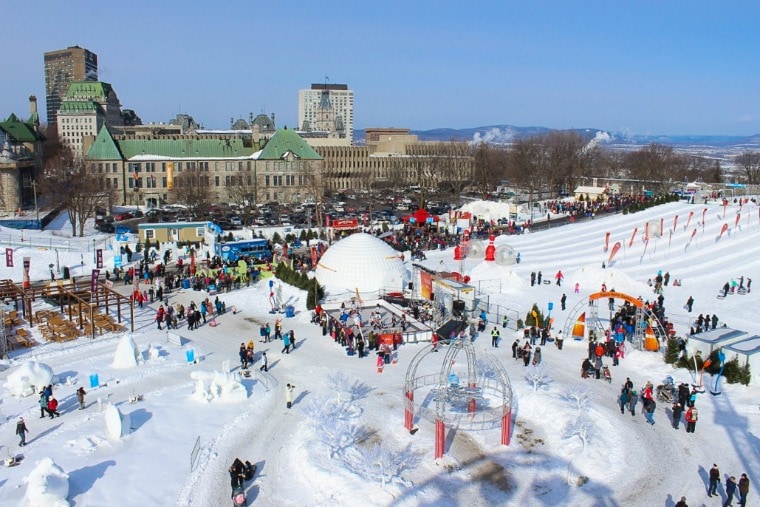 Quebec’s Climate: Embracing the Seasons
Quebec’s Climate: Embracing the Seasons
Let’s be frank about Quebec’s climate – it’s intense but creates distinct seasonal pleasures:
Winter: The Defining Season
Quebec’s winters demand respect and adaptation:
- Average temperatures from -10°C to -25°C (14°F to -13°F)
- Snow accumulation from 200-300 cm (80-120 inches) annually
- Winter season typically November through March
- Short daylight hours (as little as 8 hours in December)
- World-class winter recreation opportunities
Despite its challenges, the province has mastered winter living through:
- Excellent snow clearing operations
- Winterized infrastructure and housing
- Indoor walkways in major cities
- Winter celebration culture (Winter Carnival, Igloofest)
- Winter sports integration into daily life
Summer Glory
Summer offers intense but relatively brief brilliance:
- Warm temperatures typically ranging from 20-30°C (68-86°F)
- Occasional heat waves exceeding 30°C (86°F)
- Humidity creating subtropical feeling at times
- Extended daylight hours (up to 16 hours in June)
- Festival season in cities and towns
Summers provide perfect conditions for:
- Outdoor terraces and café culture
- Festival attendance and outdoor performances
- Lake and river recreation
- Cycling and hiking
- Urban exploration
Spring and Fall Transitions
The shoulder seasons offer their own character:
Spring (April-May)
- Gradual warming with residual snow possible
- “Sugar season” celebrating maple syrup production
- Dramatic river levels from snowmelt
- Increasing daylight energizing public spaces
- Spring urban cleaning rituals
Fall (September-October)
- Spectacular foliage displays throughout the province
- Harvest celebrations and agricultural tourism
- Comfortable temperatures ideal for outdoor activities
- Cultural season relaunch in urban centers
- Preparation for the winter ahead
These seasonal variations create a rhythm to life that embraces each distinct period rather than simply enduring the extremes.
Cost of Living: Quebec’s Value Proposition
How far will your money stretch in Quebec?
Housing Reality Check
The province offers some of Canada’s most affordable housing in major cities:
| City/Region | Average Home Price | Average 1BR Rent |
|---|---|---|
| Montréal | $565,000 | $1,350 |
| Québec City | $390,000 | $1,000 |
| Sherbrooke | $350,000 | $800 |
| Saguenay | $275,000 | $600 |
| Rural Areas | $225,000+ | $600+ |
These figures compare exceptionally favorably to Vancouver ($1.3 million average home) and Toronto ($1.2 million average home).
Daily Expenses
Quebec’s cost structure includes distinctive elements:
Taxation Reality
- Higher income tax rates compared to other provinces
- Provincial sales tax of 9.975% in addition to 5% federal GST
- Higher social contributions offsetting healthcare and social program costs
Service Benefits
- Substantially lower university tuition ($3,000-$9,000 annually vs. $7,000-$14,000 in other provinces)
- Subsidized childcare system ($8.85-$22.75 daily depending on income)
- Comprehensive healthcare coverage
- Affordable public transit systems
- Extensive cultural subsidies reducing entertainment costs
Consumer Costs
- Grocery costs generally comparable to Canadian averages
- Some imported goods more expensive due to language labeling requirements
- Lower restaurant prices compared to Toronto and Vancouver
- Affordable public recreation facilities
- Competitive telecommunications costs
This combination creates a distinctive value proposition – higher taxes but significantly lower costs for essential services like education, childcare, and housing.
Education Landscape: From Distinctive System to Research Excellence
Quebec’s education system differs fundamentally from other provinces:
Unique Structure
The system follows a different pattern:
- Elementary school (6 years)
- Secondary school (5 years)
- CEGEP (Collège d’enseignement général et professionnel) (2-3 years)
- University (3-4 years for bachelor’s degree)
The CEGEP system provides either:
- Pre-university programs preparing for university entrance (2 years)
- Technical career-focused programs leading directly to employment (3 years)
This structure means students typically complete bachelor’s degrees in three years rather than four, but with the same total years of education.
Language Considerations
Quebec’s language laws affect education access:
- French-language public education for most residents
- English-language schools restricted to children of Canadian citizens educated in English
- Some private school alternatives for English instruction
- University education available in both languages
- Bilingual programs increasingly available
Higher Education Excellence
Quebec’s universities offer world-class education:
- McGill University: Internationally ranked research university
- Université de Montréal: Major French-language research institution
- Université Laval: Quebec City’s historic French university
- Concordia University: English-language urban university in Montreal
- Network of smaller universities throughout regions
Research strengths include:
- Artificial intelligence and computer science
- Aerospace engineering
- Biomedical sciences
- Environmental sciences
- Social sciences and humanities
This educational foundation provides residents with distinctive pathways from early learning through advanced research careers.
Recreation and Lifestyle: The Quebec Art of Living
Quebec offers a distinctive approach to life quality:
Outdoor Culture
The natural environment provides recreational abundance:
- Extensive provincial park system protecting diverse ecosystems
- World-class skiing at resorts like Mont Tremblant and Le Massif
- Cycling network including the famous Route Verte
- Paddling opportunities from urban rivers to wilderness lakes
- Hiking networks throughout Laurentian and Appalachian mountains
Culinary Identity
Quebec’s food culture combines traditional and innovative approaches:
- Distinctive cuisine featuring local ingredients
- Famous specialties from poutine to tourtière
- Dynamic restaurant scene particularly in Montreal
- Strong cheese-making tradition with over 300 varieties
- Microbrewery revolution creating craft beer prominence
Cultural Participation
Quebecers actively engage with arts and culture:
- Highest per-capita cultural attendance in Canada
- Festivals celebrating everything from jazz to new cinema
- Strong public funding for cultural institutions
- Integration of arts into public spaces and daily life
- Tradition of cultural industries from circus to video games
Work-Life Balance
Quebec society emphasizes life quality:
- Longer statutory vacation periods than other North American jurisdictions
- Extended parental leave benefits
- Cultural emphasis on leisure and social connection
- Café culture encouraging relaxation and conversation
- Four-season recreational integration into lifestyle
This approach to living makes it particularly appealing to those seeking balance between career ambition and life quality.
Conclusion: Is Quebec Right for You?
The province offers distinct advantages for the right individuals and families:
You’ll Likely Thrive in Here If You:
- Speak French or are committed to learning the language
- Value cultural richness and artistic expression
- Appreciate European-influenced lifestyle with North American efficiency
- Seek affordable urban living compared to other major Canadian cities
- Enjoy four-season recreation and seasonal variety
You Might Face Challenges If:
- You’re reluctant to learn and use French daily
- You require immediate professional license recognition
- You prefer consistent warm weather year-round
- You prioritize minimal taxation over social services
- You need extensive English-language service networks
Quebec represents a truly unique Canadian opportunity, combining cultural richness with economic innovation, affordable living with urban sophistication, and traditional values with progressive social policies. For those matching its character, the province offers extraordinary potential to build meaningful and fulfilling lives in North America’s French heartland.
Helpful Resources for Learning More

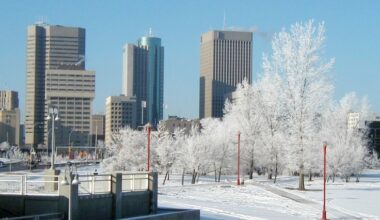

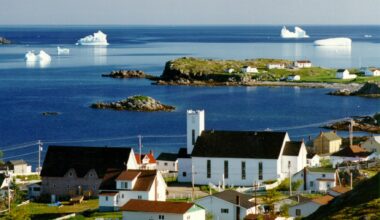
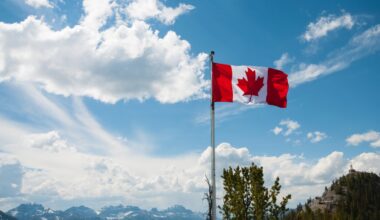
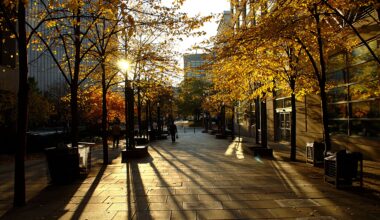
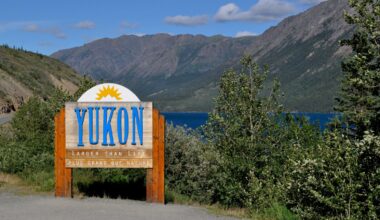
3 comments
Very well presented. Every quote was awesome and thanks for sharing the content. Keep sharing and keep motivating others.
This is really interesting, You’re a very skilled blogger. I’ve joined your feed and look forward to seeking more of your magnificent post. Also, I’ve shared your site in my social networks!
Very well presented. Every quote was awesome and thanks for sharing the content. Keep sharing and keep motivating others.